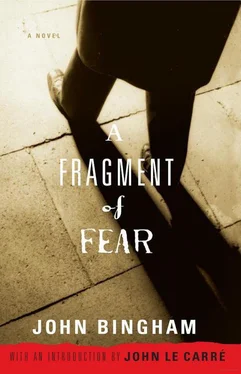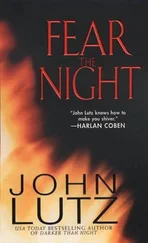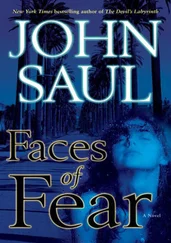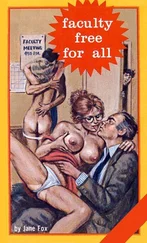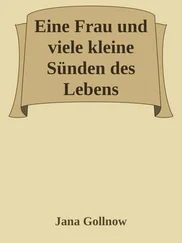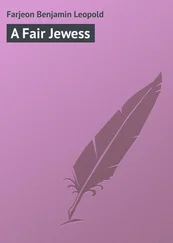John Bingham - A Fragment of Fear
Здесь есть возможность читать онлайн «John Bingham - A Fragment of Fear» весь текст электронной книги совершенно бесплатно (целиком полную версию без сокращений). В некоторых случаях можно слушать аудио, скачать через торрент в формате fb2 и присутствует краткое содержание. Жанр: Триллер, на английском языке. Описание произведения, (предисловие) а так же отзывы посетителей доступны на портале библиотеки ЛибКат.
- Название:A Fragment of Fear
- Автор:
- Жанр:
- Год:неизвестен
- ISBN:нет данных
- Рейтинг книги:3 / 5. Голосов: 1
-
Избранное:Добавить в избранное
- Отзывы:
-
Ваша оценка:
- 60
- 1
- 2
- 3
- 4
- 5
A Fragment of Fear: краткое содержание, описание и аннотация
Предлагаем к чтению аннотацию, описание, краткое содержание или предисловие (зависит от того, что написал сам автор книги «A Fragment of Fear»). Если вы не нашли необходимую информацию о книге — напишите в комментариях, мы постараемся отыскать её.
A Fragment of Fear — читать онлайн бесплатно полную книгу (весь текст) целиком
Ниже представлен текст книги, разбитый по страницам. Система сохранения места последней прочитанной страницы, позволяет с удобством читать онлайн бесплатно книгу «A Fragment of Fear», без необходимости каждый раз заново искать на чём Вы остановились. Поставьте закладку, и сможете в любой момент перейти на страницу, на которой закончили чтение.
Интервал:
Закладка:
He was delighted. Jumbled thoughts went through his mind. There had been the cruelties of a slave-owning community, the terror of the arena, the sulphurous darkness of the eruption, the centuries of silence and death; and now there was sunshine again, and the dainty white butterfly playing with this healthy, pink-faced little girl.
It restored your faith in the triumph of good over evil, he thought awkwardly, or told me he did.
He slowly walked towards the entrance to House No. 27, into which the child and butterfly had gone, hoping to see more of the chase, and staggered as the child hurtled out again and into his knees.
He bent to pick her up, saying, “What is it?” but she eluded him, and ran down the street, and fell once, as she crossed the stepping-stones to the other side where her parents were still listening to Aldo; and she picked herself up, and ran on, without bothering to brush the dust from her grazed knees, until she had flung herself into her mother’s arms.
He saw Aldo and the tourists gather round the girl, and he himself became suddenly aware of a loud thrumming noise, and turning he saw a dense cloud of flies above the wall which divided the front and the back rooms of House No. 27. So he went behind the dividing wall, and then came back again to the street, and leaned over the low outer wall, and croaked for air. As the sickness passed he heard running footsteps, and Aldo the guide joined him.
Mario Bartelli said: “Don’t go in! It is a matter for the police.”
But Aldo shook him off and went in. When he came back Mario Bartelli said:
“Stand at the entrance here and don’t let anybody in. I will run down to the Administration and report.”
Aldo said: “I will go if you wish. Smoke a cigarette. I will go.”
Mario shook his head. It was his duty to report personally all unusual incidents and irregularities in his Section.
He turned and hastened along the street, still feeling sick, half walking, half running, past the Forum, and down the street that sloped to the tunnel called the Porta Marina, and out of the twilight of the tunnel into the sunshine again, past the vendors of postcards and souvenirs, and so, perspiring, to the Administration building near the railway station.
During part of the way he thought about the child.
It was not good for a small girl to see a thing like that. It could give her nightmares.
Only a thin, ruined wall had divided innocence and fun from evil and death.
The dainty butterfly had led her in, and then flown heartlessly on. He hoped she would not have nightmares. He was afraid she would but he hoped she wouldn’t. He told me that these were his thoughts, and they probably were.
He was a kindly man at heart, though he did his best to hide the fact.
After hearing of these things from Bartelli, I returned to my hotel, and after dinner when darkness had fallen, I watched the little boats creep round the coast of the Bay of Naples, as Lucy Dawson had done, the crews fishing with lantern and hand harpoon. From the inland villages, the fireworks of the harvest festivals echoed round the mountains like gunfire. I imagined how in Pompeii the night guards were languidly patrolling, meeting, chatting, and passing on. It is easier to break into a bank, these days, than to steal the remaining Roman treasures of Pompeii.
The moon doubtless shone on the Forum and on the rising tiers of seats in the Amphitheatre, and on the House of the Mysteries, and on the Street of Tombs, turning the colour of the bricks to a pale cream, and upon the piece of bare ground on which Lucy Dawson had lain, unrobbed, her jewellery glittering, while alarm at her failure to return spread through the other hotel guests.
I got up and strolled into the hotel and made my way to the bar and ordered a cognac. Bruno, the barman, was talking to the proprietor, Signor Bardoni, a short, thick-set man with a jutting chin, known secretly to the staff as the Duce, and less reverently to the visitors as Musso.
Bardoni greeted me politely, and so he should have done, considering the prices he charged.
“And did you have a good trip, Signor Compton?” he said in English.
I shrugged, and replied in Italian. I did not like Bardoni.
“So-so. I have a notebook full of notes. It was hot. I felt like a cross between an architect and an estate agent taking an inventory.”
“It seems that you did not need to move very far for a murder story. You have heard, of course?”
I nodded and took a sip of brandy.
“When was she buried?”
“Two days ago. In the Protestant cemetery at Naples. A sad business. Not good for the tourist trade.”
“I doubt if millions of British people will cease to visit Italy because one old lady was murdered.”
“People are funny, Signor.”
“Not as funny as that.”
“We must hope not,” he said, indifferently. The subject was petering out, and that suited me. But as an afterthought I said:
“Were there any Italian people at the funeral?”
“Only me, Signor, representing the hotel. She had often visited us. I took a wreath on behalf of the staff-and of the other guests, of course.”
He had small, dark eyes, and the formation of the face around them was curiously hard, so that one had the impression that the sockets had been chopped out of wood.
I noted the chin jutting out more than usual, and the way his eyes looked straight into mine. People have grown accustomed to the cliche about shifty characters who cannot look you straight in the face, and so have the shifty characters; so much so that I have found that when a person now looks you straight in the eyes, as he speaks, it is often a damned good reason to think he is telling you a whopper.
I thought that Bardoni was probably lying now, and that he had not bothered to go.
“Any of the guests from the hotel go?”
“Signor, I did not tell them about it. Why should I? They come here for holidays, not funerals.”
“Anybody from England fly out to Naples?”
He was in a bit of a spot now, of course, because, if he hadn’t attended himself, he wouldn’t know.
“The fare is expensive, and last minute tickets hard to get,” he murmured tactfully with a sigh. He looked at his watch, muttered something about a telephone call, and left me. It was a neat evasion of the question. I guessed that as far as Bardoni was concerned Lucy Dawson had ceased to be a paying proposition, and was therefore of no account, from the moment when the scarf was tightened round her throat.
“I do not think Mrs. Dawson had any family left,” I heard Bruno say.
He was a different type from Bardoni. He was a tall, soft-spoken young man, with copper-coloured hair and grey eyes, and a friendly desire to please everybody.
I nodded and finished my brandy.
“Poor old soul,” I said.
“Poor old lady,” agreed Bruno.
I was right about Bardoni not going to the funeral. But I was wrong about the reason. In a negative sort of way, Mrs. Dawson was a paying proposition for Bardoni from the moment she died.
The following morning I still had a fixation about old Mrs. Lucy Dawson being buried by bored Italian gravediggers, after a scraped-up service by the local chaplain, the funds advanced against her estate by the British Consulate, and not a soul to wish her farewell, and not a flower thrown on the grave. And all that sort of stuff. I can be sentimental to the point of sentimentality, given half a chance. Not that it usually lasts very long.
I swam in the clear sea during part of the morning, watched a little shoal of grey fish butting their noses inquisitively against my legs when I stood upright; and I lay in the sun and read; and had a couple of iced Cinzanos before lunch.
In the afternoon I had to go into Naples to verify some facts at the National Museum, and while I was in the little electric coastal train which swayed its way past Pompeii along to Napoli-Vesuvio Station I had another nasty attack of sentimentality, and knew what I would do when I had completed my business at the museum.
Читать дальшеИнтервал:
Закладка:
Похожие книги на «A Fragment of Fear»
Представляем Вашему вниманию похожие книги на «A Fragment of Fear» списком для выбора. Мы отобрали схожую по названию и смыслу литературу в надежде предоставить читателям больше вариантов отыскать новые, интересные, ещё непрочитанные произведения.
Обсуждение, отзывы о книге «A Fragment of Fear» и просто собственные мнения читателей. Оставьте ваши комментарии, напишите, что Вы думаете о произведении, его смысле или главных героях. Укажите что конкретно понравилось, а что нет, и почему Вы так считаете.
